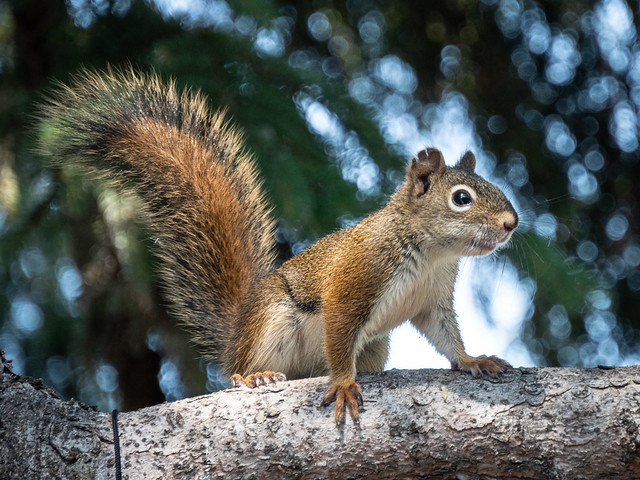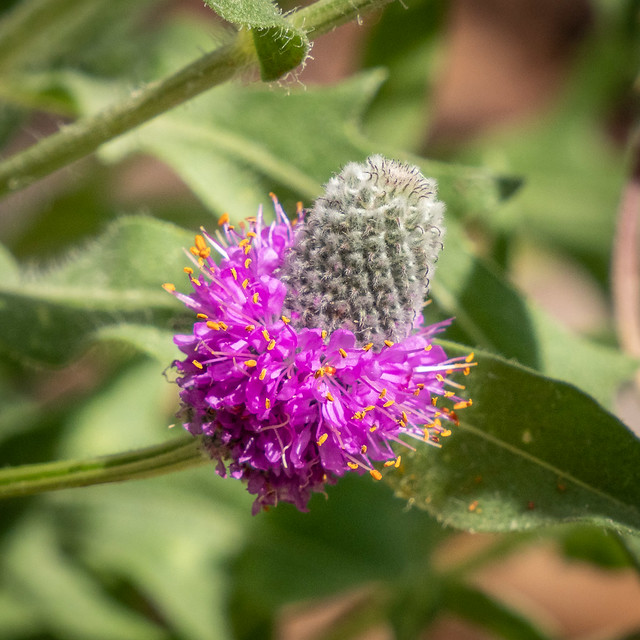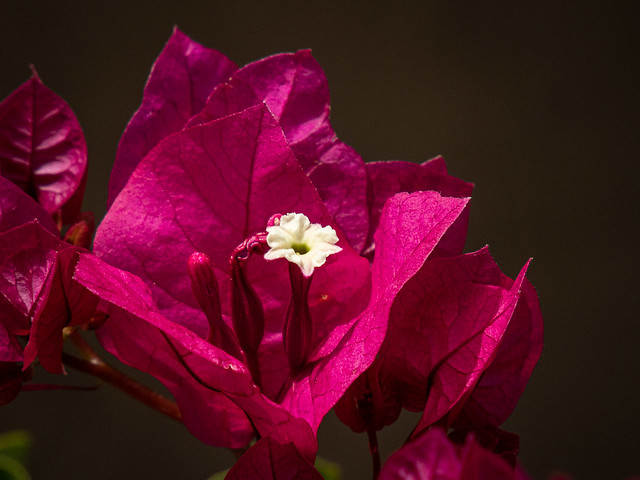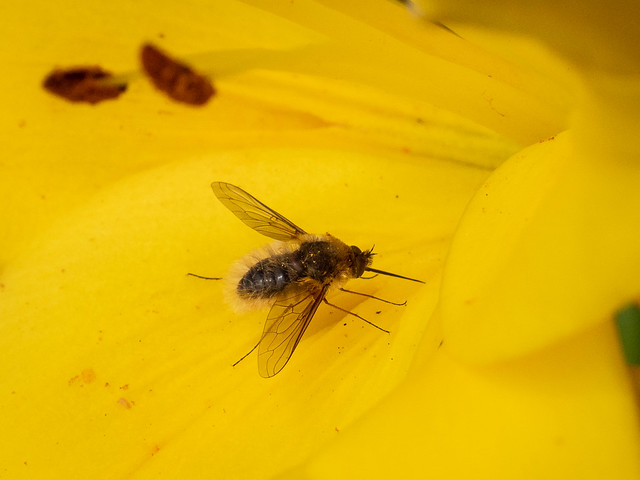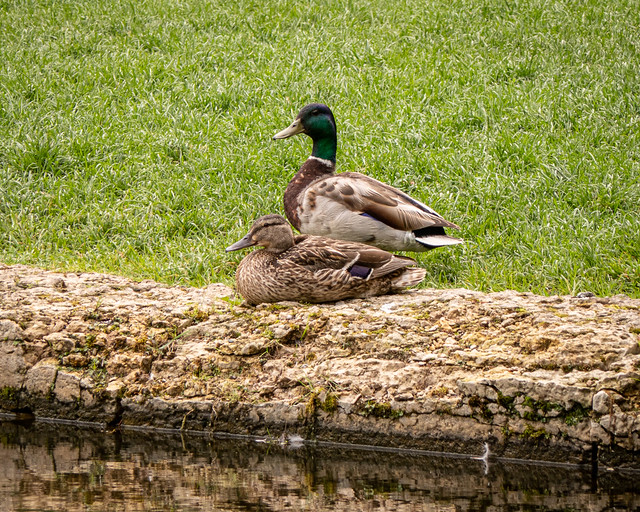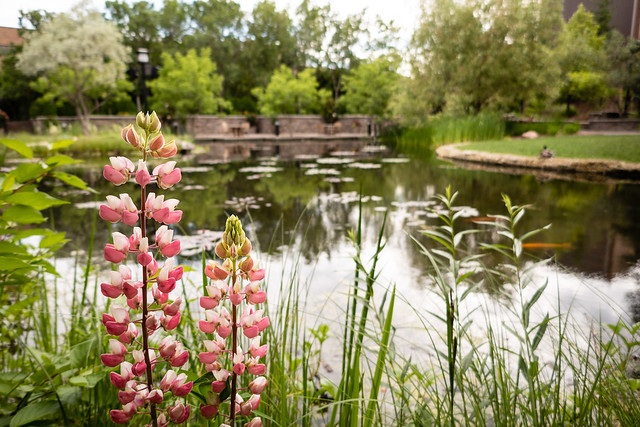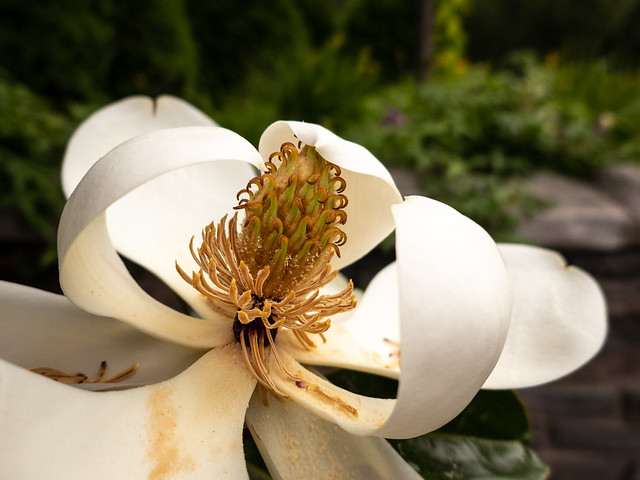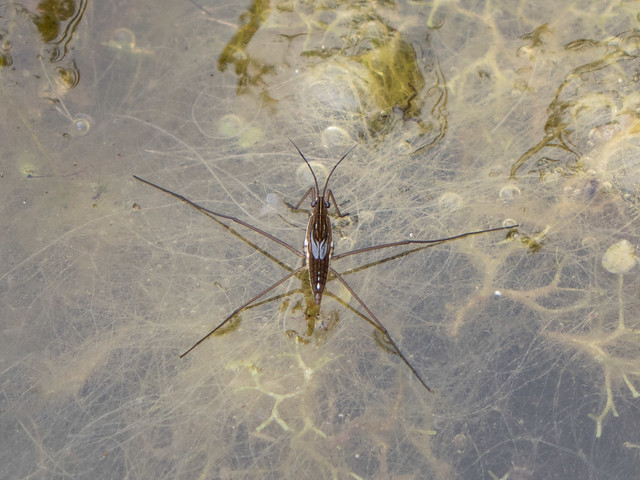Another walk to work, this one fairly interesting nature-wise.
I heard some magpies making noise (not unusual) but I saw they were chasing a couple of other birds. The other birds looked like small raptors, I guessed
Merlin's since they're the most common. In between chases the magpies and raptors returned to perch on the fence around the new fruit orchard. I managed to get close enough to get some photos, although I only had my little ZS100 and it was almost straight into the sun. Looking at the photos afterwards I realized from the black stripes on their heads that they were
American Kestrels. I've seen and photographed them other places but I think this is the first time for me in Saskatoon.
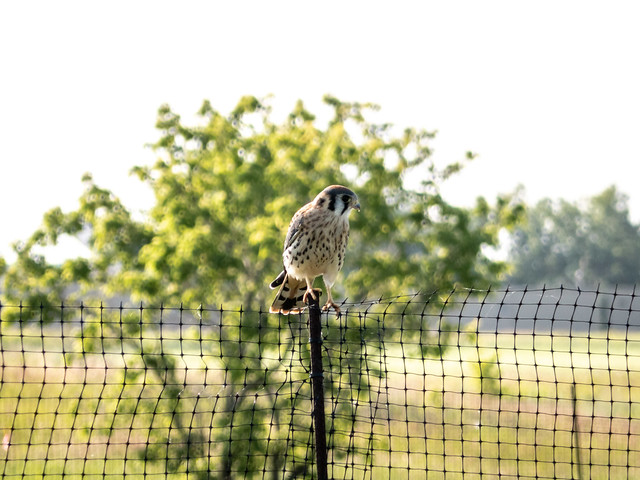
Next I spotted a wasp on some grass seed. It was running around and around the seeds and the wind was blowing so it was a challenge to get a decent shot. Based on looking at the photos later I think it's a
Yellow-legged Mud-dauber Wasp. They are a solitary parasitoid wasp that builds nests from mud. The nest has several cells that it stocks with paralyzed spiders and lays eggs in. When the eggs hatch they eat the spiders. So what was it doing on the grass seed? Looking closely at the photos, I think there's a spider in there that the wasp is trying to get at. I wonder what evolutionary path led to the extreme narrow waist.
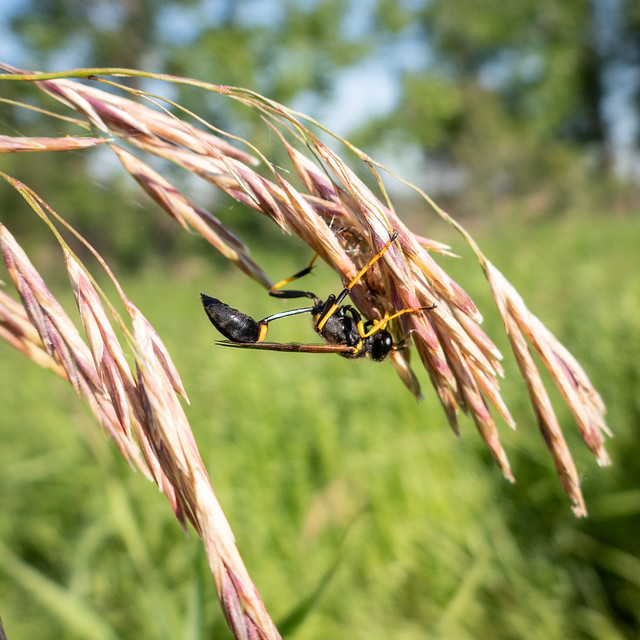
Arriving at Innovation Place I stopped to take photos of this flower (Mertensia?). I like the candy cane spirals on the flower buds.

On a lily just beside it, I noticed a motionless fly. Another
crab spider catch? Sure enough, I could just make out a spider behind the fly. Unlike the one on the roses, this one was perfectly colored to blend in with the flower. The surprise was when I looked at the photos on the computer, I realized there were two spiders - the crab spider behind, and a jumping spider in front. Both appeared to be feeding on the fly. I would guess that the crab spider ambushed the fly and the jumping spider happened upon the feast. I haven't noticed the jumping spiders hunting on the flowers before.
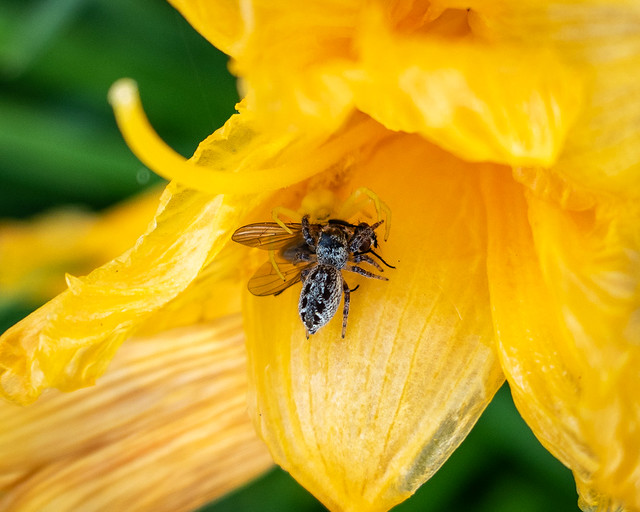
Other spiders left their webs in the plants where they collected water drops from the sprinklers.
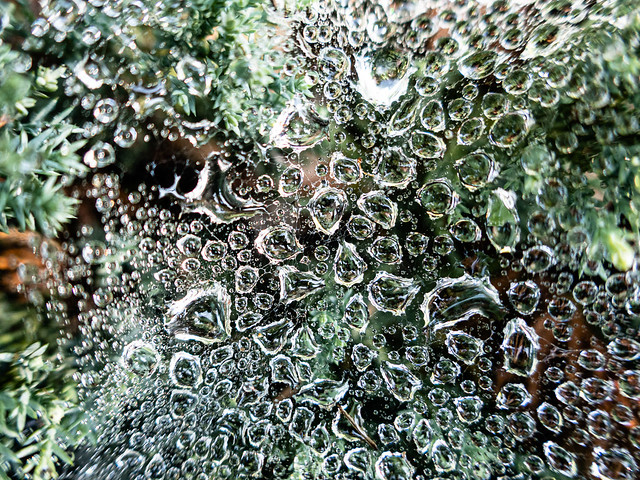
The water lilies and bougainvillea continue to bloom.
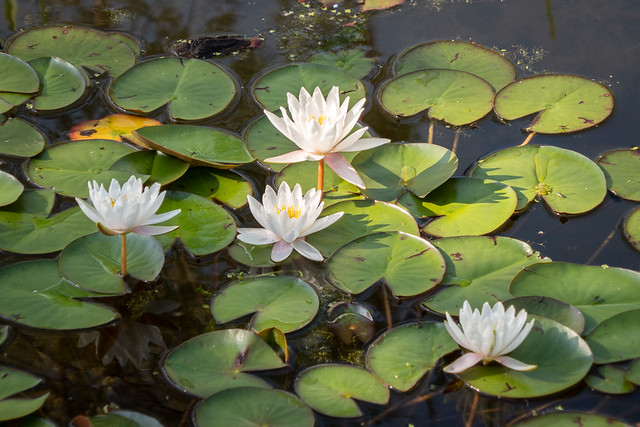

Taking photos made me late for a work Google Hangout so I joined in on my phone from beside the pond.
At lunch and after work these sparrows were keeping me company. Judging by the yellow around the mouth I think they are juveniles.
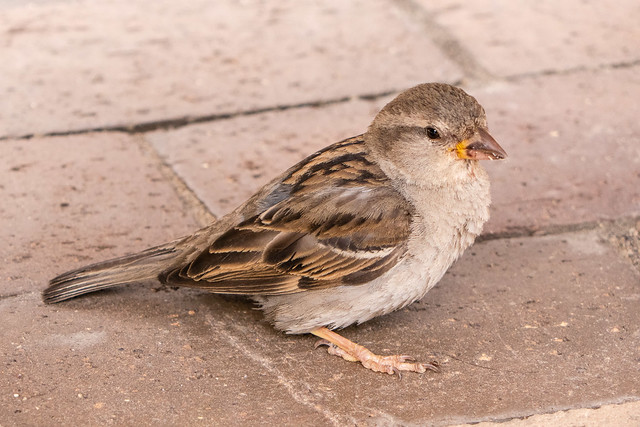

This wasp was collecting wood fiber to build it's nest. I think it's a German Yellowjacket.

There were lots of damselflies around the pond. One of the ways to distinguish them is that damselflies perch with their wings together whereas dragonflies perch with their wings spread. But these Spreadwing damselflies perch with their wings partly open. They still have the wide spaced protruding eyes of damselflies.

I normally wouldn't bother taking more photos of the ubiquitous
water striders, but this one was stationary while I was photographing the damselfly, so I took advantage of the cooperative subject.

I'm reading
Mariposa Road so I've been more on the lookout for butterflies. But there haven't been many cooperative subjects. I'm not sure why this one was just sitting on the path. It didn't seem to be injured. I think it's a
Cabbage White.
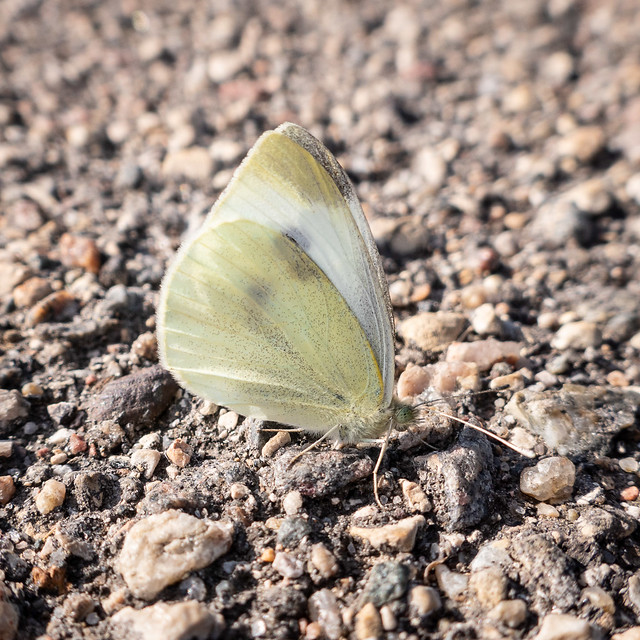
This one was also sitting on a path a few days ago. I didn't recognize it at first because I'm used to seeing the top of its wings. It's a
Mourning Cloak. Usually I notice them in the spring because they overwinter as adults and are one of the first butterflies to emerge. The ones that overwinter are often somewhat ragged. This one looks quite fresh and undamaged.



